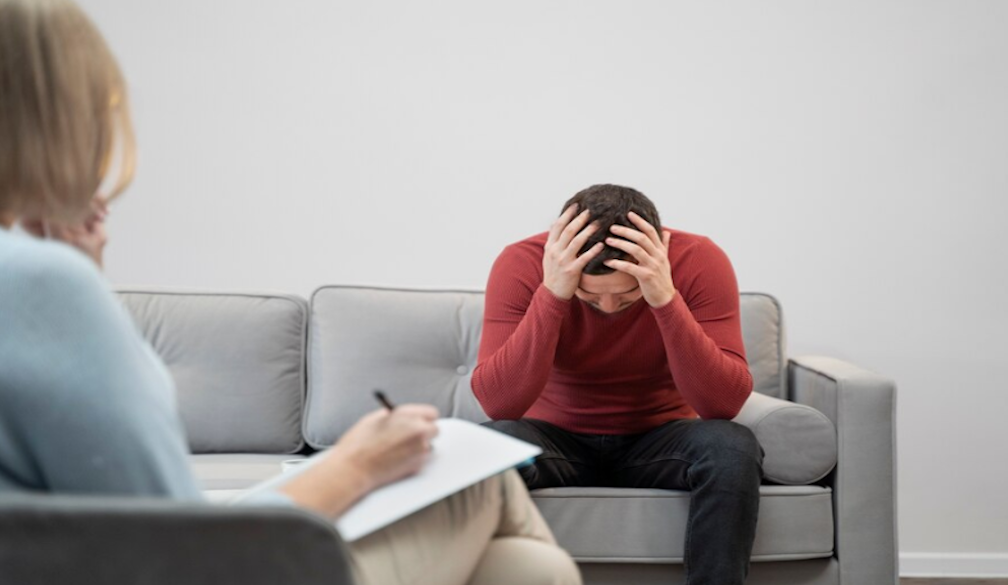Effective Counselling for Depression: How Therapy Can Make a Difference

When someone says they are feeling down, worn out, or stressed out due to specific situations, it should not be taken lightly. We all face such difficult times when wanting to run away and hide from everyone is easy. It’s normal to experience a mix of emotions, but when those feelings persist, they can affect everyday life.
You're not alone if you’ve been feeling unlike yourself for a while. Depression is more than just sadness—it can impact your relationships, job, and overall well-being. The positive aspect is that counselling for depression can redeem you from such an experience and change your course for the better.
What is Depression?
If you find nothing enjoyable in activities you formerly enjoyed or reached extreme tiredness, this is more serious than a stage that will soon end. Depression often shows up as:
- Persistent sadness, apathy, or irritability
- Trouble sleeping or oversleeping
- Lack of energy, concentration, or motivation
- Physical pain like headaches or backaches
Treating depression through counselling is amongst the most effective ways to approach the condition because you learn to cope with, as well as control, your thoughts and emotions.
Why Counselling for Depression Works
You might be wondering: Can talking to someone help with something as profound as depression? Yes. When you are depressed, it can appear as if the mind and the body are in a frozen mode. Collaborating with a trained therapist is critical in getting these “stuck” motions by finding out what is causing your moods to be lifted and how to adapt to them better.
The very decision to begin the process is a sign of strength. This means you are ready to accept changes, however frightening that may be. After being depressed with a feeling for years, depression is not a condition that subsides in one day or two, but with the right counsellor, it will be easier to shed sophisticated overthinking and emotions, which are the main ties that enslave you and your incapacity to escape.
Benefits of Counselling for Depression
Some of the key benefits include:
1) Reduced Symptoms:
Studies have shown that counselling does help improve levels of low mood, seclusion, and fatigue.
2) Improved Relationships:
You can strengthen your relationships by working on communication skills and emotional expression.
3) Preventing Relapse:
With approaches like MBCT, therapy can help you catch early signs of depression before they worsen.
4) Better Coping Strategies:
Coping with stress is attainable since therapy will enable you to cope with aggression in new ways.
The Therapy Process: How It Works and What to Look Forward to
It is common for you to have some degree of apprehension, especially when commencing therapy. What do you think will come out in the sessions? What even is the purpose? Don’t worry; a decent therapist will steer you through the talking and ensure you feel safe enough to open up. When you begin to fight depression, however, new feelings such as anger or anxiety may crop up. This is entirely normal.
According to therapist Margaret Hux, “I celebrate when a very depressed client starts to show anger or even anxiety. This is an encouraging sign that we are making some headway with this, and we can take those emotions in and find out what actions or changes need to take place in their life.:
Therapy can be a transformative process, but it’s not always smooth. You may feel worse before you feel better, especially as deeply buried emotions surface. But with patience and the right support, these challenges become growth opportunities.
Types of Therapy for Depression
Hence, not every person will respond to every type of therapy. Concurrent treatments or therapies include various combinations. Here, we shall expound on some techniques that have proven to be effective in dealing with depression:
1) Cognitive Behavioral Therapy (CBT)
Of all the proven therapy forms for the treatment of depression, CBT is well certainly a household name.
This helps a person notice their negative thought patterns and change them to more positive ones. You begin rethinking the facts by trying to reason those thoughts away, which routinely but ineffectively intrude into your head.
2) Interpersonal Therapy (IPT)
Relationships play a big role in our emotional health. IPT, in particular, seeks to comprehend and manage all those interpersonal relationships in one’s life that seem to be a source of depression.
3) Mindfulness-Based Cognitive Therapy (MBCT)
This approach blends mindfulness techniques with cognitive therapy. Given that it combines the tools of cognitive therapy with mindfulness practice, the main uses for it focus on depression relapse prevention measures and the treatment of suicidal behaviour. To correct such vicious cognition, simply being aware of those thoughts and emotions helps prevent the chain from progressing into one of those vicious cycles.
Conclusion
Depression counselling will assist you in addressing your issues and assist in reclaiming your life. With sensitive and practical problems surrounding you, a diagnosis like depression is surmountable through therapy, and one can learn to be more positive.
It’s not easy, but it’s worth it. Getting help from a counsellor is the fastest route to recovering your clearness and peace of mind. No one should feel bad; most importantly, no one should stay in bad situations forever.
